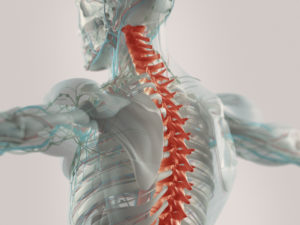As attorneys representing victims, we spend most of our time and energy thinking about our clients and their injuries. We investigate the negligence (usually just simple carelessness) that caused those injuries and we work hard to make sure our clients get the recovery they deserve. As a result, we often blog about the rights of victims and about issues important to the cause of helping those victims. This post is a little different. This post is about the unsung heroes: Physical therapists.
The American Physical Therapy Association describes physical therapy as "the science of healing and the art of caring." Physical therapists are the medical professionals who typically spend the most time with the patient managing the aftermath of an accident. They help broken bones to heal. They teach torn and twisted muscles to stretch and work again. They help cajole soft tissue out of inflammation and work hard to restore it to its original condition. They do more than simply treat the injury by rehabilitating the damage—physical therapists treat the pain, fear, and frustration that follows an accident by caring about their patients. We find that many of people we represent develop close relationships with their physical therapists. Most often, physical therapists are a source of support and understanding for the injured people they treat. The physical therapist helps the patients achieve maximum recovery.
But this is not all that a good physical therapist can do for you. Though the rules of evidence in a trial may prevent a physical therapist from testifying that the accident was the medical cause of a person’s injuries, they can still be critically important witnesses on behalf of victims. Physical therapists see first-hand the pain and discomfort which accidents can cause. They watch a patient struggle through the tedious and often painful process of recovery. A physical therapist can provide testimony that helps to frame a patient’s pain and suffering in medical terms using details and descriptions from the struggle that they witnessed first-hand. The limitations in use or range of motion of a shoulder, back, or knee are observed by the physical therapist. Also, a physical therapist can testify about a patient’s efforts and commitment to overcome the injuries. Because of their unique position, a physical therapist can play a critical role in defeating insurance company arguments that a patient is malingering (faking it), not trying to get better, or that the injuries are not that bad. Physical therapists see for themselves how difficult it can be to recover from injuries and as hands-on professionals they are in the best position to describe that truth to jurors.
If you find yourself with a serious orthopedic injury from an accident, you will likely go to physical therapy; it can be an important part of your recovery. If you do, please take a moment and thank your physical therapist for all of their tireless work on behalf of injured people.









Comments for this article are closed.